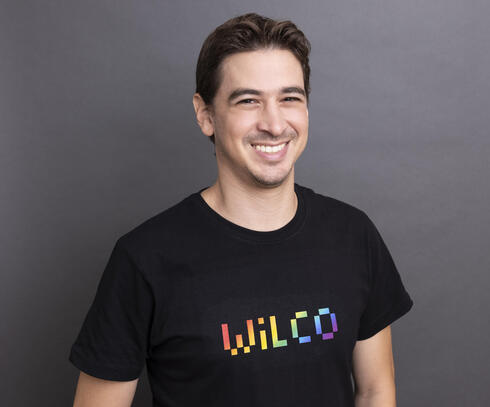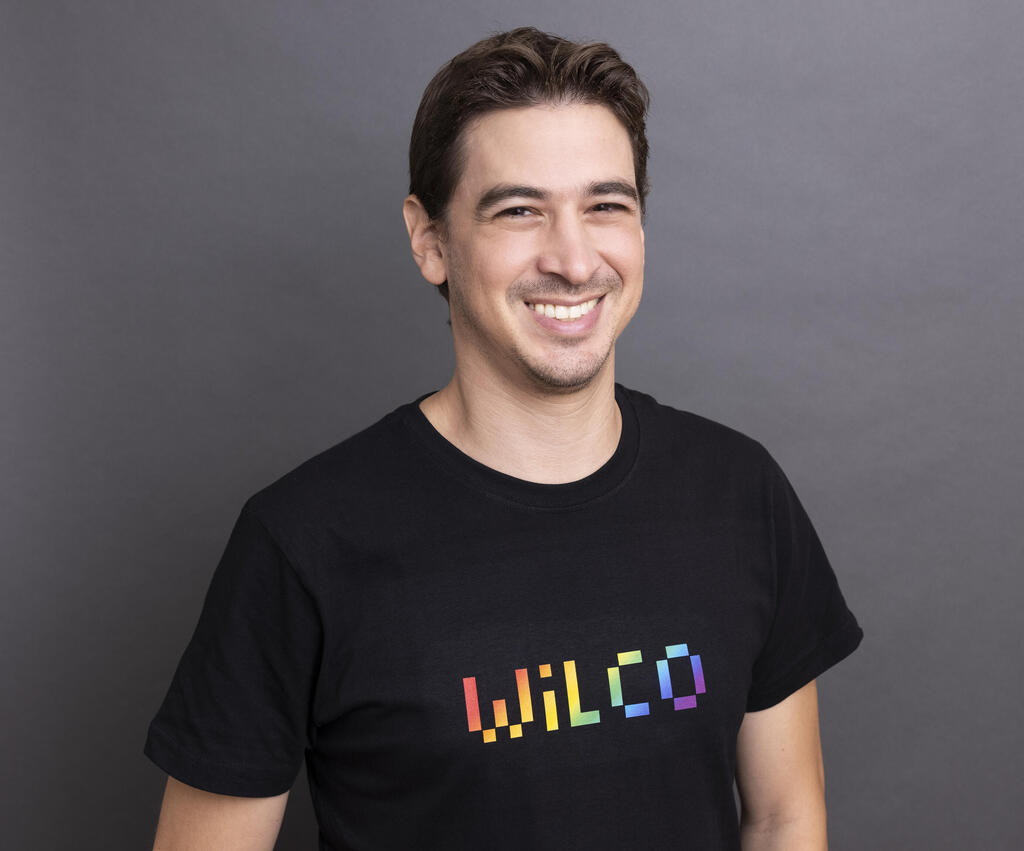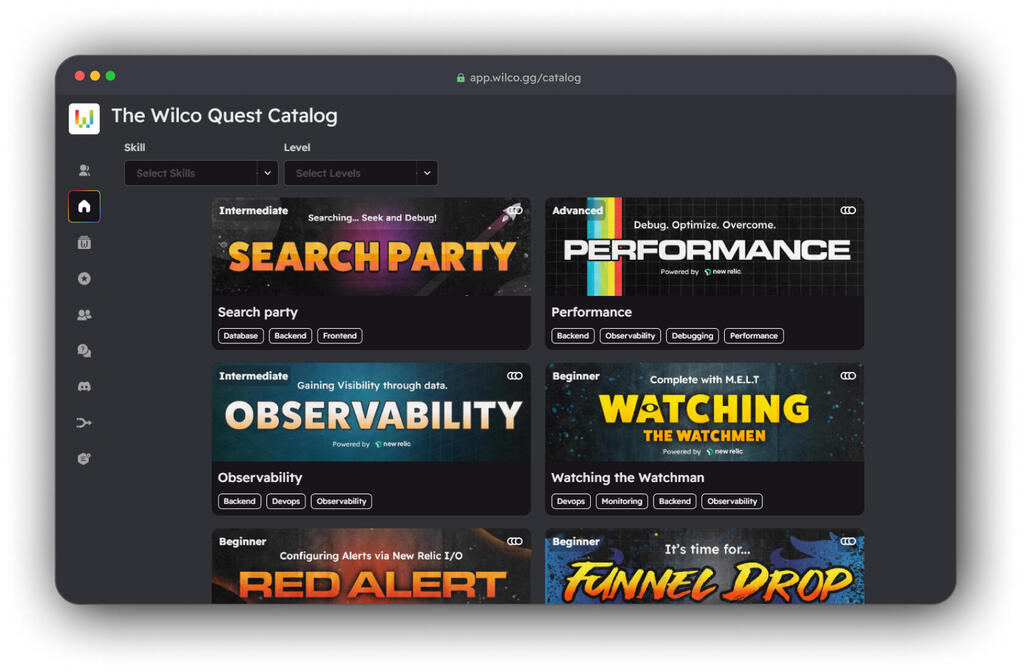
Interview
Game On: Wilco’s realistic simulator helps developers develop their skills
Co-founder and CEO On Freund shares his personal journey from WeWork to Wilco and what the Apple TV+ series WeCrashed got right - and wrong
On Freund’s origin story really begins when he was 8 years old. “Growing up in the 1980s, our family had an IBM XT personal computer at home,” Freund recalls with a smile. “It was really cool. Of course, in those days nobody had their own laptop or desktop; it was just one computer for everyone to share. I am the youngest of four siblings and they would always use it and I was also very drawn to it. Back then I had a series of booklets called Machshevet which taught young people, I believe it was for ages 15 & up - and not intended for eight-year-olds - how to write BASIC programs. So I learned to do really cool things, like writing my own computer games and creating cool graphics. I think I got through seven booklets before the mathematics got too advanced for me. I didn’t have a formal teacher or go to a class for any of that, so, I guess back then I was self-taught.”
Today Freund is the co-founder and CEO of Wilco, an Israeli startup which has developed an upskilling platform for software developers. He founded the company in 2021 together with Shem Magnezi (CTO), and Alon Carmel (CPO). To date Wilco has raised $7 million in Seed round funding and employs 24 workers, all but one of whom are in Israel. Wilco’s offices are located in WeWork ToHa in Tel Aviv, an irony that is not lost on Freund who spent nearly seven years working for WeWork in New York and then Israel prior to founding Wilco.
Why the name Wilco?
“The company’s name is related to what we are doing. Wilco is like a flight simulator, but for software developers instead of aviation, The units of content in our platform are called 'quests'. Now, if you combine the concepts of ‘aviation’ and ‘quests’ it recalls a popular game from the 80s called ‘Space Quest’. The protagonist in that game was named Roger Wilco, after the military shorthand. Because we are big fans of 80s video games we adopted the name as a nice homage to that era.”
How did the idea to found Wilco come about?
“My two co-founders and I were all work colleagues at WeWork for several years, so we know each other well. As for me, as VP of Engineering at Handy and subsequently at WeWork, I was constantly looking for ways to upskill my team. You have developers who are really good in theory, and everyone around them is trying to teach them more theory, but nobody is actually practicing the skills beyond writing code. However, there are many other skills, both hard and soft skills, that are required to do your job, but nobody is teaching you those. Many soft skills and technical areas of expertise — like team communication, debugging complex systems, and responding to crises — are picked up by developers only with countless hours of hands-on experience, which is hard to come by. Those are things you can’t really learn, you just need to practice them. Otherwise you just learn on the fly, and when you do that it’s very slow and exclusively depends on actual situations you encounter. Secondly, learning on the fly is very error prone and can lead to catastrophic mistakes. Finally, it doesn’t provide equal opportunity. Two developers could begin working at the same level but based on circumstances they won’t get the same opportunities to learn and grow and there will be gaps."
So, how does one get to practice not ‘on the fly’?
“Originally my idea was to organize night courses where I would expose developers to simulations of real work scenarios. I reached out to a few boot camps with this idea in hopes that within a few months the participants could gain vast experience. But every boot camp I pitched this idea to said the same thing: "We care about going from 0 to 1, not 1 to 100.”
So Freund dropped the idea for a while. In the meantime he returned to Israel from New York in 2016 and upon leaving his job at WeWork in 2020 he floated the idea again to a few CTOs. “When I told my former co-worker Alon Carmel about it he said I was ‘stupid’ because I would only get a few students to sign up for such a night course and it wouldn’t really make a dent in the universe. He said we needed to come up with a scalable way to solve the problem and he told me that our former co-worker Shem Magnezi was already thinking about this space. So that’s how the three of us came together to form what would become Wilco.”
On Wilco’s platform, which acts as a “flight simulator” for software developers, developers join a fantasy tech company — a game-like experience designed to accelerate their professional growth and take on engaging challenges that replicate the complicated scenarios they’ll encounter on the job. At their “new workplace”, engineers go on quests that challenge them to navigate complex life-like scenarios while utilizing real tools and technologies.
Quest Builder
This week Wilco announced the release of its Quest Builder which allows any company to create a Wilco quest showcasing their dev tool. Quests can recreate a software development scenario that highlights the specific pain point the tool addresses, so developers can see first-hand the products’ unique value in a true-to-life setting. Early users of the editor include leading developer companies like CircleCI, Armory and Permit.io. Four observability-focused quests by New Relic, a design partner, have already been completed by thousands of developers.
“The release of the Quest Builder opens up the platform so industry-leading experts can contribute their knowledge and expertise,” Freund said, “We expect dozens of new quests to be added in the coming months.” Wilco also announced its first online creator Hackathon, which will take place between January 8th-28th.
For over six years you worked for WeWork, first in New York and then in Israel. How much of the Apple TV+ series WeCrashed was accurate?
“I really enjoyed the series,” Freund said, “but it is a work of fiction and it’s important to stress that. They did get a lot of things right. They managed to get some of the subtleties of some of the characters right, but in the series timelines are mangled and characters are consolidated and some were completely made up. They took many artistic liberties.
"But one of the things that the series got right was how connected all the employees were to WeWork’s mission. Employees were not just in it for financial gain or because it was just a job to them, they really cared about what they were doing and the show captured a lot of that.”
What lessons - positive or negative - do you take from your WeWork experiences into Wilco?
“First of all, on the positive side, we want to get everyone at Wilco aligned with the company’s mission. I admit that at WeWork their mission may have been a little too ambitious. Our mission at Wilco is to empower every developer, regardless of background or skill level, to unlock their full potential.
"On the flip side, a very important lesson I learned from WeWork is to make sure that there is full transparency in everything we do at Wilco. Lack of transparency was a major problem for WeWork. And of course, as opposed to WeWork, I am doing my best to make sure that Wilco is fiscally responsible.”
How do you view the current crisis of mass layoffs in tech?
“Yes, it’s a challenging time and my heart goes out to anybody who has been cut back, but in the long term the demand for developers is not going away. Developers are going to be needed over the next two decades and I just hope that we at Wilco will be able to support them along this journey. A new feature on Wilco allows users to show and share their portfolio of what they’ve done on our platform. This is actual experience that can help them land developer jobs.”
Where do you see Israeli tech heading?
“It used to be that if you had a consumer-based startup, you had to be in the U.S. (Silicon Valley) or your sales team had to be managed by U.S. people. They would say Israelis are only good at tech. But I have seen a huge shift in the last couple of years. Now there are very successful consumer and product companies, both B2B and B2C, here in Israel and not just tech startups. You see a lot of successful Israeli companies traded in the U.S., but with the founder and CEO living in Israel. We are seeing the transformation from being the ‘startup nation’ to the ‘scale up nation’ and I think it’s great. I couldn’t be prouder that WIlco is an Israeli startup.”















